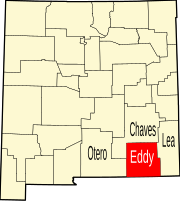Demographics
Historical population| Census | Pop. | Note | %± |
|---|
| 1950 | 1,487 | | — |
|---|
| 1960 | 1,646 | | 10.7% |
|---|
| 1970 | 1,192 | | −27.6% |
|---|
| 1980 | 1,355 | | 13.7% |
|---|
| 1990 | 1,243 | | −8.3% |
|---|
| 2000 | 1,326 | | 6.7% |
|---|
| 2010 | 1,413 | | 6.6% |
|---|
| 2020 | 1,390 | | −1.6% |
|---|
|
As of the census [7] of 2000, there were 1,326 people, 441 households, and 339 families residing in the village. The population density was 1,168.7 inhabitants per square mile (451.2/km2). There were 516 housing units at an average density of 454.8 units per square mile (175.6 units/km2). The racial makeup of the village was 57.69% White, 0.30% African American, 1.58% Native American, 36.88% from other races, and 3.54% from two or more races. Hispanic or Latino of any race were 78.28% of the population.
There were 441 households, out of which 43.1% had children under the age of 18 living with them, 58.5% were married couples living together, 12.0% had a female householder with no husband present, and 23.1% were non-families. 21.5% of all households were made up of individuals, and 10.0% had someone living alone who was 65 years of age or older. The average household size was 3.01 and the average family size was 3.49.
In the village, the population was spread out, with 34.6% under the age of 18, 8.1% from 18 to 24, 26.1% from 25 to 44, 19.3% from 45 to 64, and 11.8% who were 65 years of age or older. The median age was 31 years. For every 100 females, there were 101.2 males. For every 100 females age 18 and over, there were 105.0 males.
The median income for a household in the village was $22,414, and the median income for a family was $25,132. Males had a median income of $25,000 versus $16,250 for females. The per capita income for the village was $10,715. About 23.5% of families and 24.0% of the population were below the poverty line, including 26.5% of those under age 18 and 25.5% of those age 65 or over.
This page is based on this
Wikipedia article Text is available under the
CC BY-SA 4.0 license; additional terms may apply.
Images, videos and audio are available under their respective licenses.


